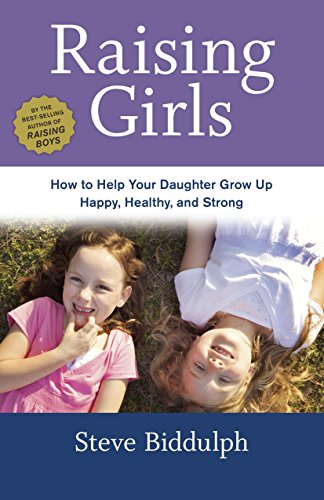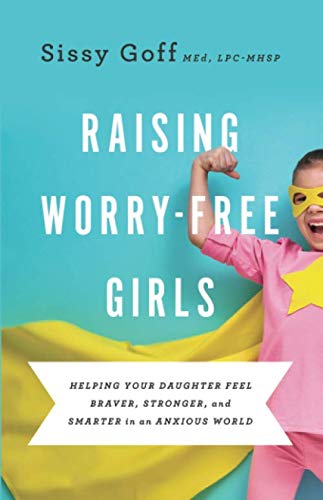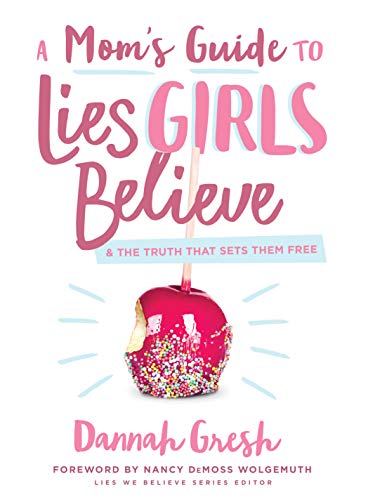
It’s frightening how young girls are when they start to get the message that how they look is super important. Our culture is so appearance-focused that even in elementary school, girls may worry about how cute or pretty they look—or even how sexy. (Yikes!) That makes raising a confident girl in today’s photo-focused culture challenging.
Certainly, by the time girls reach middle school, they are well aware that they’re judged by their looks…and almost all of them think they come up short. Numerous studies have shown that the time in life that girls experience the steepest decline in self-confidence is the tween years, just as puberty hits. It’s heartbreaking to see your wonderful, spunky, interesting daughter start to find fault with her body, or even to hate it.
As a mom and a female, you can probably relate. Even as an adult, it’s so easy to worry about your “flaws,” extra pounds, and every other way, large and small, you don’t measure up to some idealized standard of beauty that doesn’t even exist in the real world. You know other things are more important than looks, but it’s so hard to not get sucked in. So imagine how much harder it is for our daughters.
So, what’s a Mom to do?
Young girls must understand the ins and outs of puberty
Parents need to have ongoing conversations about everything puberty with their adolescents. It’s important they receive accurate information from a reliable source instead of only receiving messages from marketing, social media and random sources on the Internet.
Until the culture changes, it’s probably not possible to raise a daughter who’s completely free of self-consciousness about her face, her hair and her body. But it’s not hopeless. There are definitely things parents can do that offset the forces that try to make appearance the dominant measure of a girl’s worth.
Seven tips to help instill confidence in your pre-teen girl
Watch your own language.
Too many of us adult women complain about wrinkles or cellulite or how much we weigh or how fat we look from a certain angle—and our daughters hear us. Self-criticism about your appearance isn’t great for you, and it isn’t doing your daughter any favors. The words we use matter. Strive to be kinder to yourself about your physical “flaws.” Catch yourself before you say anything negative about your own or anyone else’s body, especially when she’s around.
Focus on things besides looks.
Raising a confident girl means going beyond their appearance. Compliment your daughter less often on her appearance and much more often on the more important, intrinsic things about her: her creative problem-solving, her persistence, her kindness, her intellect, her athleticism, her courage, her being a good friend, etc. You might work with her to develop a list of her strengths, which she can refer to when she starts worrying about appearance.
Validate the awkwardness of puberty.
It’s a cruddy reality that just as girls start to get more focused on the approval of others, their bodies start doing inconvenient things. Developing breasts and hips feels awkward to most girls, especially those who develop earlier or later than their peers. Acne makes kids even more self-conscious. There’s not a lot you can do about this, but you can talk with your daughter about it. Make sure she knows that almost everyone feels uncomfortable about their changing body—and we all get through it.
Encourage your daughter to look around her at real bodies.
Point out that the unrealistic standards that apply to models and actresses are a far cry from what most people actually look like. Suggest she look not just in the media, but at actual people, in all our variety.
In particular, have her notice women who excel at sports (other than things like gymnastics and figure skating, where appearance matters a lot). Soccer players, sprinters, javelin throwers, basketball players, and all the rest: strong, healthy, fit women come in all sorts of shapes and sizes. The model-thin “ideal” in most advertising is actually an unhealthy level of thinness. It’s much better to be strong and fit than to be thin.
Have her use her body, not just look at it.
Our bodies are amazing. We can run, climb, dance, sing, reach, jump, create, hug. We don’t have to do those things because someone is watching us, but because they feel good to us, on the inside. Invite your daughter to pay attention to what ways of using her body make her feel strong, competent, happy, and glowing.
If she’s into sports, that may be easy. If she’s not much of an athlete, help her find some way to enjoy her body for the things it can do—maybe walking, or karate, or yoga.
Educate your daughter about how marketers manipulate us.
The more businesses can make us think we’re not good enough, the more cosmetics, clothes, and weight-loss products they can sell.
Make a game of catching marketers’ tactics. Go through a magazine with your daughter or watch commercials together. Point out all the ways women’s looks are put down or a certain form of attractiveness is glorified. Virtually every ad for makeup, skincare, hair products, and clothes implies there’s something that needs to be fixed (so, quick, buy our product and you’ll be spared the horror of looking bad!).
When your daughter becomes more aware of how many messages about appearance she’s assaulted with daily, she can be more skeptical about them and less likely to get sucked into their “you’re not attractive enough” message.
Have her get outside and off her phone.
A focus on appearance is, by definition, all about how we look at other people. The way to offset that is by paying attention to how we feel inside. In a constantly connected, constantly comparing world, that’s become a lost art.
Research shows that girls who have at least an hour or two each day (not including sleep) without devices do better emotionally than girls who are constantly connected. For starters, make it a family rule that no one, including parents, uses phones at the dinner table.
We get it, though, it can be hard to get your teen or pre-teen off their phone, but it will be worth it.
Even better, ensure your daughter gets time away from devices every day, preferably outside. Encourage her to go for a walk or a run, or meditate, or do a creative project—anything she enjoys that gives her time to just be, to step away from comparisons, to tune into her own thoughts and feelings. Hands-on, analog experience in the real world is the most valuable antidote to the body-shaming distortions of digital life.
More resources to help in raising a confident girl
No More Mean Girls: The Secret to Raising Strong, Confident, and Compassionate Girls







This post was contributed by Jill Whitney, LMFT. She is the mom of two twenty-somethings and a licensed marriage and family therapist in Connecticut. In addition to her clinical work, she conducts workshops on talking about sexuality, writes at KeepTheTalkGoing.com, and has been quoted in dozens of articles on relationships and sexuality. She’s passionate about improving communication about sexuality, especially between parents and kids.
Raising tween and teen daughters can be challenging, let us help you with these other great posts:
Goodbye Dollhouse, Goodbye Little Girl
Here Is How To Help If Your Tween Daughter Is Always In Tears
Dear Daughter, As You Enter the Teen Years
Middle School, The Hardest Years of Your Life As A Mom (So Far)
*This post contains affiliate links where we earn a small commission based on products purchased from our site.
















Leave a Comment